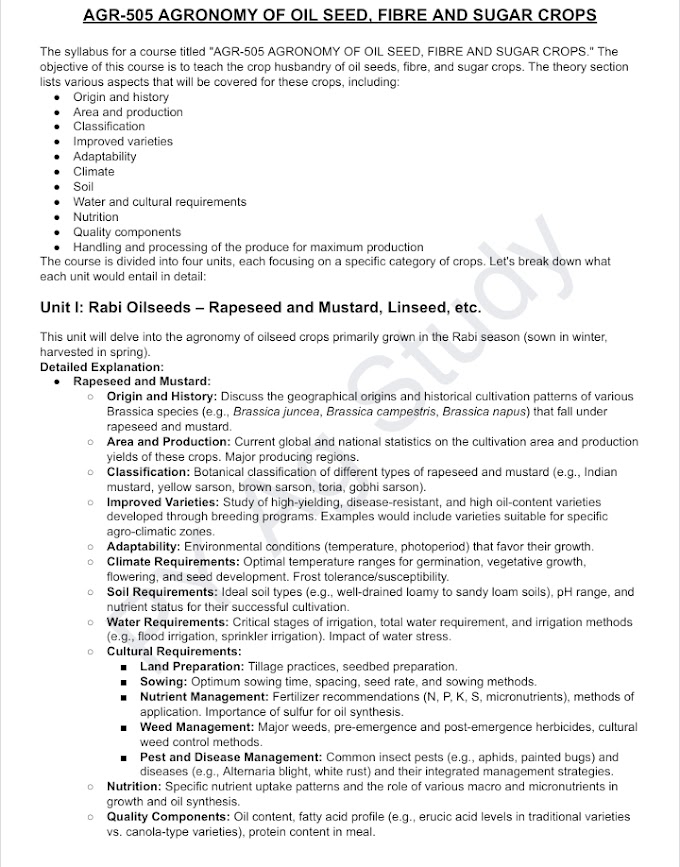Organic farming is a holistic agricultural system that aims to produce food and fiber in an environmentally and socially responsible manner. It emphasizes the use of renewable resources, the conservation of soil and water, and the avoidance of synthetic pesticides, herbicides, fertilizers, genetically modified organisms (GMOs), and antibiotics in livestock. The core principles of organic farming include health, ecology, fairness, and care.
Nutrient Management in Organic Farming
Organic nutrient management focuses on building healthy soil as the foundation for plant nutrition. This is achieved through a variety of practices:
* Crop Rotation: Planting different crops in a planned sequence helps improve soil structure, nutrient cycling, and reduces the buildup of specific pests and diseases. Leguminous crops in the rotation can fix atmospheric nitrogen, enriching the soil.
* Green Manures and Cover Crops: Growing specific plants (green manures) and incorporating them into the soil or using plants to cover the soil surface (cover crops) helps prevent soil erosion, suppress weeds, add organic matter, and improve nutrient availability. Some cover crops can also fix nitrogen.
* Compost and Farmyard Manure: Properly composted organic materials like animal manure, crop residues, and food waste are rich in essential nutrients and beneficial microorganisms. Their application improves soil structure, water retention, and nutrient availability.
* Biofertilizers: These are microorganisms that enhance nutrient availability in the soil. Examples include nitrogen-fixing bacteria (like Rhizobium with legumes, Azotobacter, Azospirillum) and phosphorus-solubilizing bacteria and fungi.
* Mineral Amendments: Naturally occurring mineral sources like rock phosphate (for phosphorus), potassium sulfate (for potassium and sulfur), and lime or sulfur (to adjust soil pH) are used in limited quantities when necessary.
* Reduced Tillage: Minimizing soil disturbance helps preserve soil structure, organic matter, and beneficial microbial communities, leading to better nutrient retention and cycling.
Weed Management in Organic Farming
Organic weed management relies on a diverse set of preventive and direct control strategies to minimize weed competition without synthetic herbicides:
1. Preventive Measures:
* Clean Seeds and Planting Material: Using weed-free seeds and transplants prevents the introduction of new weed species.
* Farm Hygiene: Regularly cleaning farm equipment and tools reduces the spread of weed seeds between fields.
* Composted Manure: Properly composting animal manure kills many weed seeds, preventing their introduction to the soil.
* Mulching: Applying organic materials (straw, wood chips, compost) or plastic films on the soil surface smothers weeds and prevents their germination.
2. Cultural Practices:
* Crop Rotation: Rotating crops can disrupt weed life cycles and prevent the dominance of specific weed species.
* Cover Cropping: Dense cover crops can outcompete weeds for light, water, and nutrients, and some may release allelopathic compounds that inhibit weed germination.
* Increased Crop Density and Narrow Row Spacing: Planting crops more densely and in narrower rows helps them establish quickly and shade out emerging weeds.
* Intercropping and Companion Planting: Growing different crops together can enhance competition against weeds and provide other benefits like pest deterrence.
* Stale Seed Bed Technique: Preparing the seedbed well in advance of planting and allowing weeds to germinate, then killing them with shallow cultivation or flaming before planting the crop, reduces the weed seed bank.
3. Direct Control Methods:
* Mechanical Weed Control: Techniques like hoeing, hand weeding, cultivation (using various tools), and harrowing physically remove or bury weeds.
* Thermal Weed Control: Using flame weeders or hot water/steam to kill weeds by damaging their plant cells.
* Biological Weed Control: Introducing natural enemies of weeds, such as specific insects or fungi, although this is less common and requires careful management.
Organic farming emphasizes an integrated approach to both nutrient and weed management, focusing on building a healthy and resilient agroecosystem that naturally supports crop growth and suppresses weed problems.

.jpeg)






